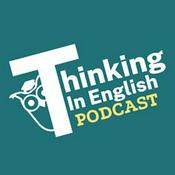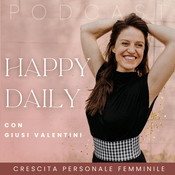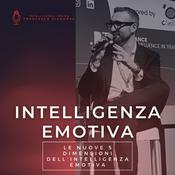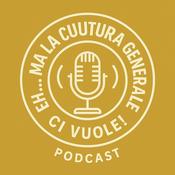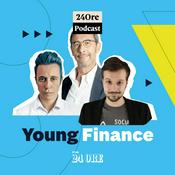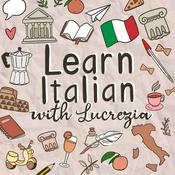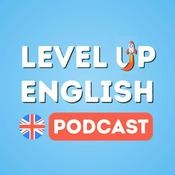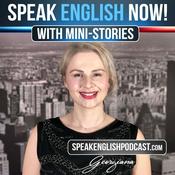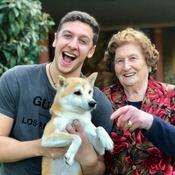211 episodi
- The process of understanding who we are is a lifelong journey for many of us. For two decades, that question has been one that University of Chicago scholar Eric Oliver has asked his students in class—and inspired him to write a new book called "How to Know Your Self: The Art & Science of Discovering Who You Really Are."
A renowned political scientist, Oliver draws upon science, philosophy, psychology and his personal experiences to better examine the mysteries of the human experience—and explore what it truly means to be “you.”
Hosted by Simplecast, an AdsWizz company. See pcm.adswizz.com for information about our collection and use of personal data for advertising. - What if we could precisely measure a cell at its most fundamental level? In this episode, we talk with the University of Chicago scientist Peter Maurer about how he and his colleagues made the breakthrough discovery of turning a protein found in living cells into the first biological quantum bit, also known as a qubit.
Maurer explains how quantum systems—once thought to be too fragile for real-world use—are becoming some of the most powerful sensors ever built, and what they could teach us about the brain, the body and more.
Hosted by Simplecast, an AdsWizz company. See pcm.adswizz.com for information about our collection and use of personal data for advertising. - We've all heard the phrase "Manifest Your Destiny" when it comes to wanting a new promotion, figuring out a new career path or just trying to achieve that long-term goal. It turns out that the act of manifestation is not merely pseudoscience—it actually has a body of research in neuroscience to back it up.
James Doty was a clinical professor of neurosurgery at Stanford University, and founder and director of the Center for Compassion and Altruism Research and Education. He wrote several books, including Mind Magic: The Neuroscience of Manifestation and How It Changes Everything.
Hosted by Simplecast, an AdsWizz company. See pcm.adswizz.com for information about our collection and use of personal data for advertising. - The internet and social media have transformed the way in which we hear and understand music today—and online communities and platforms from YouTube to TikTok have changed how music circulates and ultimately goes viral. Why do some pop stars have more success creating hit songs and building online following than others?
In this episode, we speak with Paula Clare Harper, a musicologist and assistant professor at the University of Chicago. Harper co-edited the book Taylor Swift: The Star, The Songs, The Fans, which explores the online musical cultures that produced and propelled the image of megastar Taylor Swift. Harper unpacks how gendered narratives around "the fangirl" continue to influence which musical practices we take seriously—and how studying music on the internet helps us understand contemporary cultural power.
Hosted by Simplecast, an AdsWizz company. See pcm.adswizz.com for information about our collection and use of personal data for advertising. - Can you imagine a world in which a wearable device, like a smartwatch, could move your fingers to strum the guitar or play the drums? That kind of technology is part of the innovative research coming out of the Human-Computer Integration Lab at the University of Chicago, led by renowned computer scientist Pedro Lopes. His lab is developing a new generation of gadgets that use haptics (or tactile sensations like the buzz of your smartphone) to move your body, replicate your sense of smell and even make you feel things.
In this episode, Lopes explores the potential of wearable devices to transform our future as well as brain-computer interfaces that are being developed by companies like Elon Musk’s Neuralink that directly into the body.
Hosted by Simplecast, an AdsWizz company. See pcm.adswizz.com for information about our collection and use of personal data for advertising.
Altri podcast di Scolastico
Podcast di tendenza in Scolastico
Su Big Brains
Big Brains explores the groundbreaking research and discoveries that are changing our world. In each episode, we talk to leading experts and unpack their work in straightforward terms. Interesting conversations that cover a gamut of topics from how music affects our brains to what happens after we die.
Sito web del podcastAscolta Big Brains, Learning Easy English e molti altri podcast da tutto il mondo con l’applicazione di radio.it
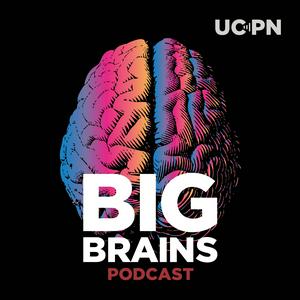
Scarica l'app gratuita radio.it
- Salva le radio e i podcast favoriti
- Streaming via Wi-Fi o Bluetooth
- Supporta Carplay & Android Auto
- Molte altre funzioni dell'app
Scarica l'app gratuita radio.it
- Salva le radio e i podcast favoriti
- Streaming via Wi-Fi o Bluetooth
- Supporta Carplay & Android Auto
- Molte altre funzioni dell'app


Big Brains
Scansione il codice,
scarica l'app,
ascolta.
scarica l'app,
ascolta.



